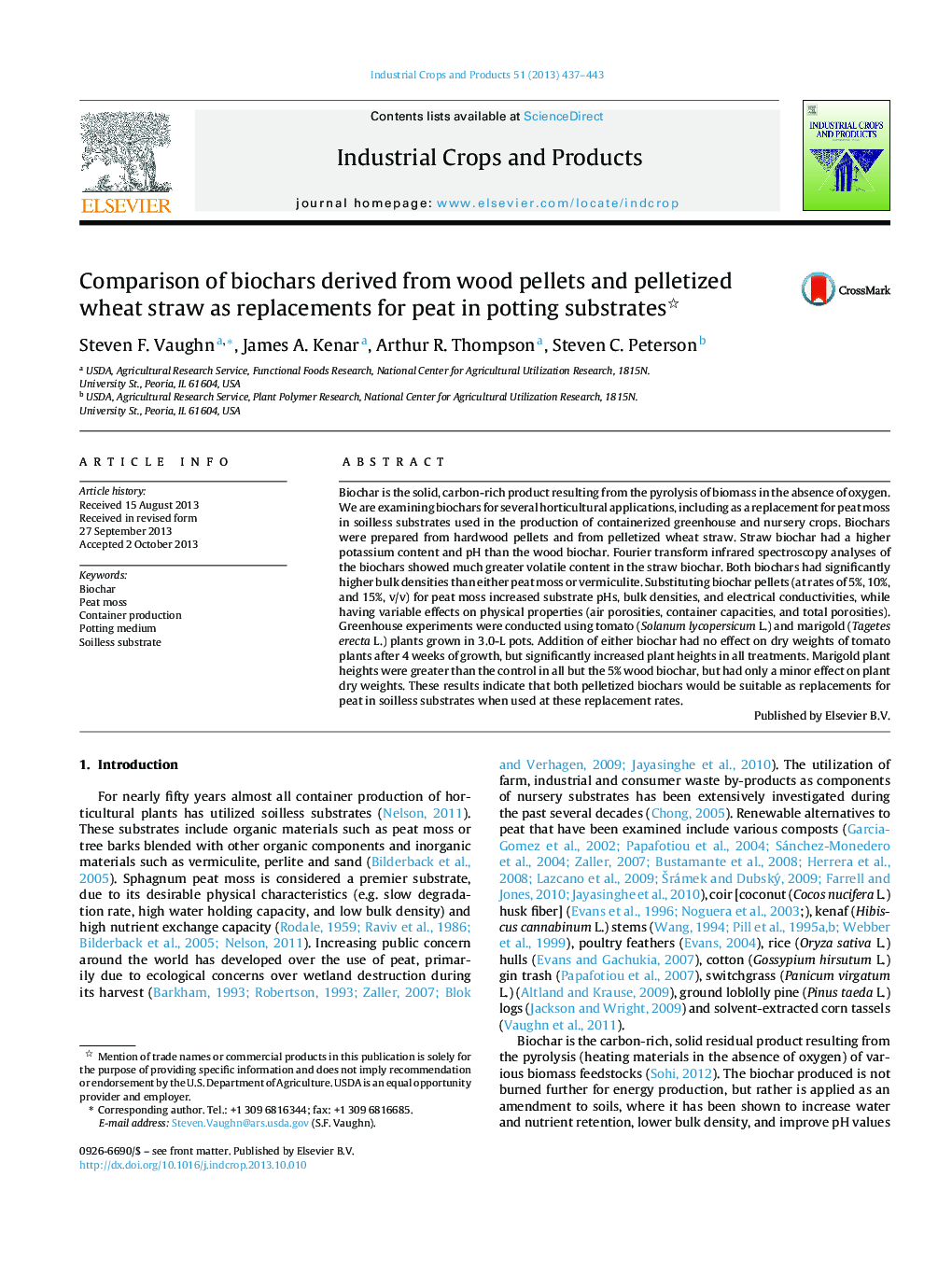| Article ID | Journal | Published Year | Pages | File Type |
|---|---|---|---|---|
| 6377249 | Industrial Crops and Products | 2013 | 7 Pages |
Abstract
Biochar is the solid, carbon-rich product resulting from the pyrolysis of biomass in the absence of oxygen. We are examining biochars for several horticultural applications, including as a replacement for peat moss in soilless substrates used in the production of containerized greenhouse and nursery crops. Biochars were prepared from hardwood pellets and from pelletized wheat straw. Straw biochar had a higher potassium content and pH than the wood biochar. Fourier transform infrared spectroscopy analyses of the biochars showed much greater volatile content in the straw biochar. Both biochars had significantly higher bulk densities than either peat moss or vermiculite. Substituting biochar pellets (at rates of 5%, 10%, and 15%, v/v) for peat moss increased substrate pHs, bulk densities, and electrical conductivities, while having variable effects on physical properties (air porosities, container capacities, and total porosities). Greenhouse experiments were conducted using tomato (Solanum lycopersicum L.) and marigold (Tagetes erecta L.) plants grown in 3.0-L pots. Addition of either biochar had no effect on dry weights of tomato plants after 4 weeks of growth, but significantly increased plant heights in all treatments. Marigold plant heights were greater than the control in all but the 5% wood biochar, but had only a minor effect on plant dry weights. These results indicate that both pelletized biochars would be suitable as replacements for peat in soilless substrates when used at these replacement rates.
Related Topics
Life Sciences
Agricultural and Biological Sciences
Agronomy and Crop Science
Authors
Steven F. Vaughn, James A. Kenar, Arthur R. Thompson, Steven C. Peterson,
